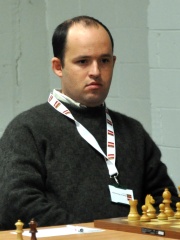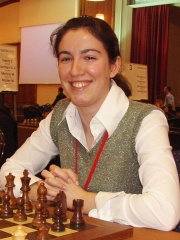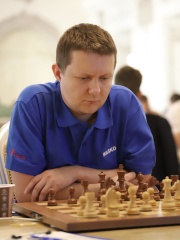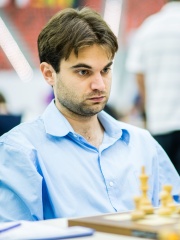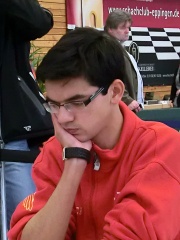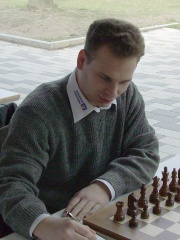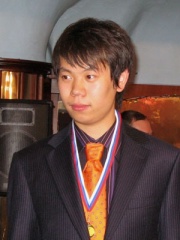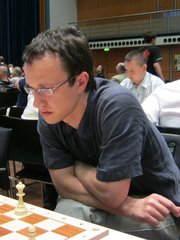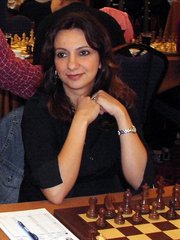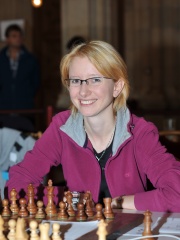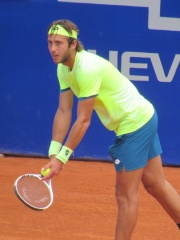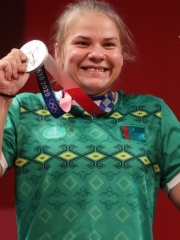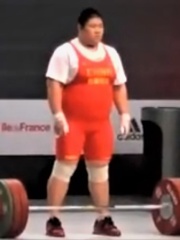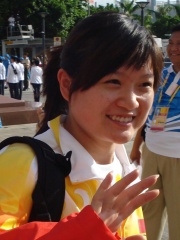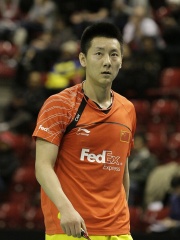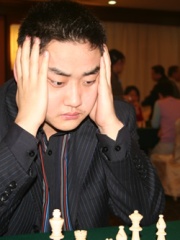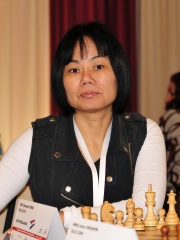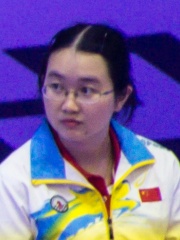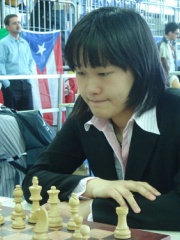Chess Player
Wei Yi
1999 - today
EN.WIKIPEDIA PAGE VIEWS (PV)
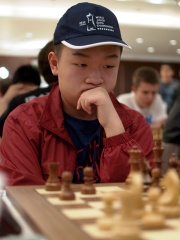
 Wei Yi
Wei Yi
Wei Yi (Chinese: 韦奕; born 2 June 1999) is a Chinese chess grandmaster. Wei became a grandmaster at the age of 13 years, 8 months and 23 days, the 11th youngest in history (fourth at the time). He is the youngest player ever to reach a rating of 2700, accomplishing this feat at age 15. Wei represents the Jiangsu club in the China Chess League and is a three-time Chinese Chess Champion, 2018 Asian Chess Champion and 2022 Asian Games Men's individual rapid champion. Read more on Wikipedia
His biography is available in 30 different languages on Wikipedia (up from 27 in 2024). Wei Yi is the 392nd most popular chess player (up from 396th in 2024), the 1,433rd most popular biography from China (up from 1,444th in 2019) and the 14th most popular Chinese Chess Player.
Memorability Metrics
Page views of Wei Yi by language
Among Chess Players
Among chess players, Wei Yi ranks 392 out of 461. Before him are Boris Avrukh, Yelena Dembo, Igor Miladinović, Gregory Serper, Alexander Areshchenko, and Sam Shankland. After him are Anish Giri, Péter Ács, Wang Hao, Vadim Zvjaginsev, Anna-Maria Botsari, and Eva Moser.
Most Popular Chess Players in Wikipedia
Go to all RankingsBoris Avrukh
1978 - Present
HPI: 40.69
Rank: 386
Yelena Dembo
1983 - Present
HPI: 40.68
Rank: 387
Igor Miladinović
1974 - Present
HPI: 40.67
Rank: 388
Gregory Serper
1969 - Present
HPI: 40.63
Rank: 389
Alexander Areshchenko
1986 - Present
HPI: 40.62
Rank: 390
Sam Shankland
1991 - Present
HPI: 40.57
Rank: 391
Wei Yi
1999 - Present
HPI: 40.53
Rank: 392
Anish Giri
1994 - Present
HPI: 40.49
Rank: 393
Péter Ács
1981 - Present
HPI: 40.43
Rank: 394
Wang Hao
1989 - Present
HPI: 40.42
Rank: 395
Vadim Zvjaginsev
1976 - Present
HPI: 40.39
Rank: 396
Anna-Maria Botsari
1972 - Present
HPI: 40.32
Rank: 397
Eva Moser
1982 - 2019
HPI: 40.32
Rank: 398
Contemporaries
Among people born in 1999, Wei Yi ranks 271. Before him are Hinata Miyazawa, Kim So-hye, Dakota Goyo, Adolfo Gaich, Camren Bicondova, and Diogo Leite. After him are Tomás Martín Etcheverry, Brec Bassinger, Robert Shwartzman, Josh Cavallo, Polina Guryeva, and Keyshawn Davis.
Others Born in 1999
Go to all RankingsHinata Miyazawa
SOCCER PLAYER
1999 - Present
HPI: 40.67
Rank: 265
Kim So-hye
ACTOR
1999 - Present
HPI: 40.67
Rank: 266
Dakota Goyo
ACTOR
1999 - Present
HPI: 40.63
Rank: 267
Adolfo Gaich
SOCCER PLAYER
1999 - Present
HPI: 40.63
Rank: 268
Camren Bicondova
ACTOR
1999 - Present
HPI: 40.61
Rank: 269
Diogo Leite
SOCCER PLAYER
1999 - Present
HPI: 40.53
Rank: 270
Wei Yi
CHESS PLAYER
1999 - Present
HPI: 40.53
Rank: 271
Tomás Martín Etcheverry
TENNIS PLAYER
1999 - Present
HPI: 40.50
Rank: 272
Brec Bassinger
ACTOR
1999 - Present
HPI: 40.49
Rank: 273
Robert Shwartzman
RACING DRIVER
1999 - Present
HPI: 40.44
Rank: 274
Josh Cavallo
SOCCER PLAYER
1999 - Present
HPI: 40.44
Rank: 275
Polina Guryeva
ATHLETE
1999 - Present
HPI: 40.40
Rank: 276
Keyshawn Davis
BOXER
1999 - Present
HPI: 40.29
Rank: 277
In China
Among people born in China, Wei Yi ranks 1,433 out of NaN. Before him are Pan Zhanle (2004), Zhou Lulu (1988), Guo Wenjun (1984), Zhao Xuri (1985), Jeon Ji-hee (1992), and Xu Chao (1994). After him are Li Na (1981), Wu You (1984), Jiao Liuyang (1991), Jiang Lin (1981), Wang Hao (1989), and Chen Jin (1986).
Others born in China
Go to all RankingsPan Zhanle
SWIMMER
2004 - Present
HPI: 40.64
Rank: 1,427
Zhou Lulu
ATHLETE
1988 - Present
HPI: 40.62
Rank: 1,428
Guo Wenjun
ATHLETE
1984 - Present
HPI: 40.60
Rank: 1,429
Zhao Xuri
SOCCER PLAYER
1985 - Present
HPI: 40.58
Rank: 1,430
Jeon Ji-hee
ATHLETE
1992 - Present
HPI: 40.55
Rank: 1,431
Xu Chao
CYCLIST
1994 - 2024
HPI: 40.53
Rank: 1,432
Wei Yi
CHESS PLAYER
1999 - Present
HPI: 40.53
Rank: 1,433
Li Na
FENCER
1981 - Present
HPI: 40.50
Rank: 1,434
Wu You
ATHLETE
1984 - Present
HPI: 40.45
Rank: 1,435
Jiao Liuyang
SWIMMER
1991 - Present
HPI: 40.43
Rank: 1,436
Jiang Lin
ATHLETE
1981 - Present
HPI: 40.42
Rank: 1,437
Wang Hao
CHESS PLAYER
1989 - Present
HPI: 40.42
Rank: 1,438
Chen Jin
BADMINTON PLAYER
1986 - Present
HPI: 40.42
Rank: 1,439
Among Chess Players In China
Among chess players born in China, Wei Yi ranks 14. Before him are Wang Yue (1987), Qin Kanying (1974), Peng Zhaoqin (1968), Tan Zhongyi (1991), Zhang Zhong (1978), and Li Chao (1989). After him are Wang Hao (1989), Bu Xiangzhi (1985), Zhao Xue (1985), Ni Hua (1983), Ruan Lufei (1987), and Lei Tingjie (1997).
Wang Yue
1987 - Present
HPI: 44.79
Rank: 8
Qin Kanying
1974 - Present
HPI: 43.82
Rank: 9
Peng Zhaoqin
1968 - Present
HPI: 43.29
Rank: 10
Tan Zhongyi
1991 - Present
HPI: 43.12
Rank: 11
Zhang Zhong
1978 - Present
HPI: 43.09
Rank: 12
Li Chao
1989 - Present
HPI: 41.38
Rank: 13
Wei Yi
1999 - Present
HPI: 40.53
Rank: 14
Wang Hao
1989 - Present
HPI: 40.42
Rank: 15
Bu Xiangzhi
1985 - Present
HPI: 39.01
Rank: 16
Zhao Xue
1985 - Present
HPI: 37.12
Rank: 17
Ni Hua
1983 - Present
HPI: 37.06
Rank: 18
Ruan Lufei
1987 - Present
HPI: 36.46
Rank: 19
Lei Tingjie
1997 - Present
HPI: 35.46
Rank: 20
